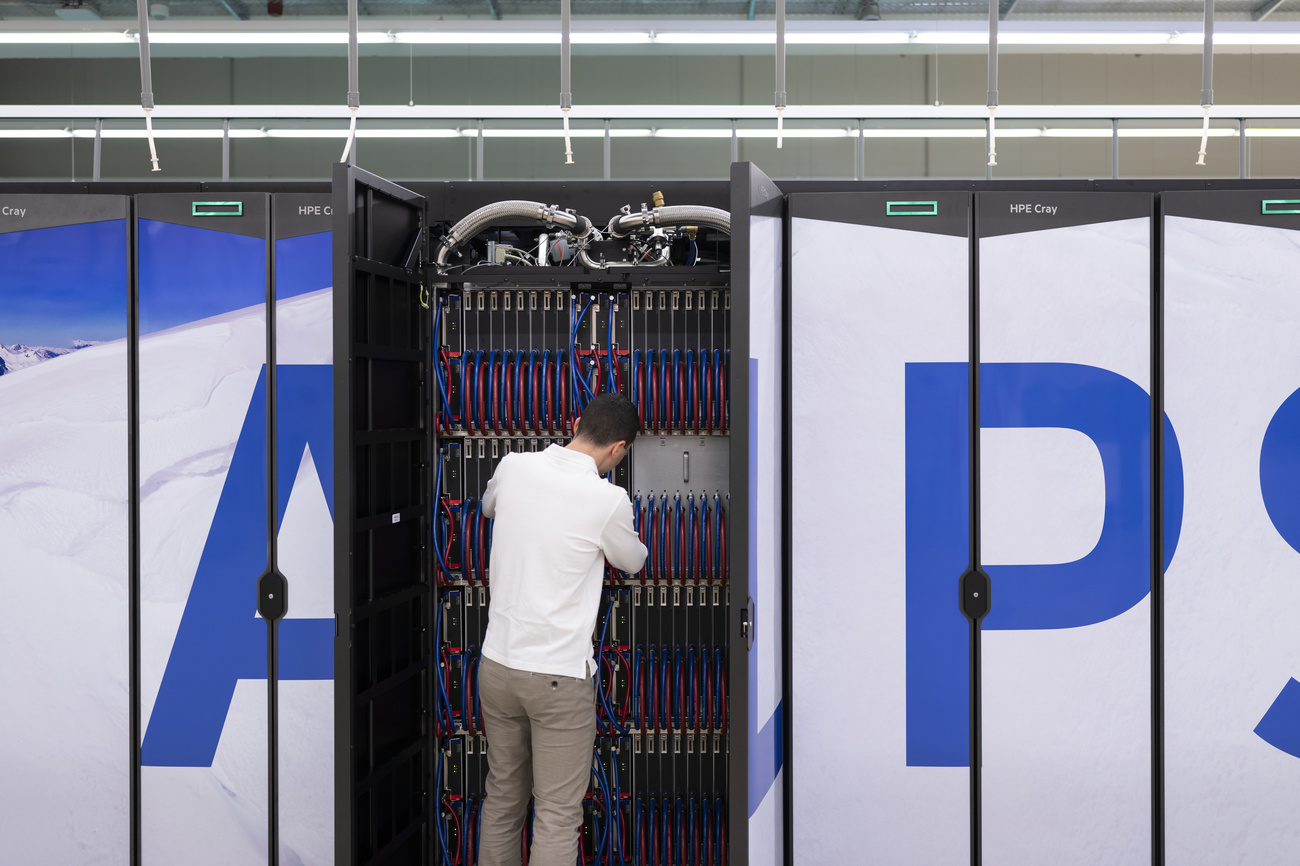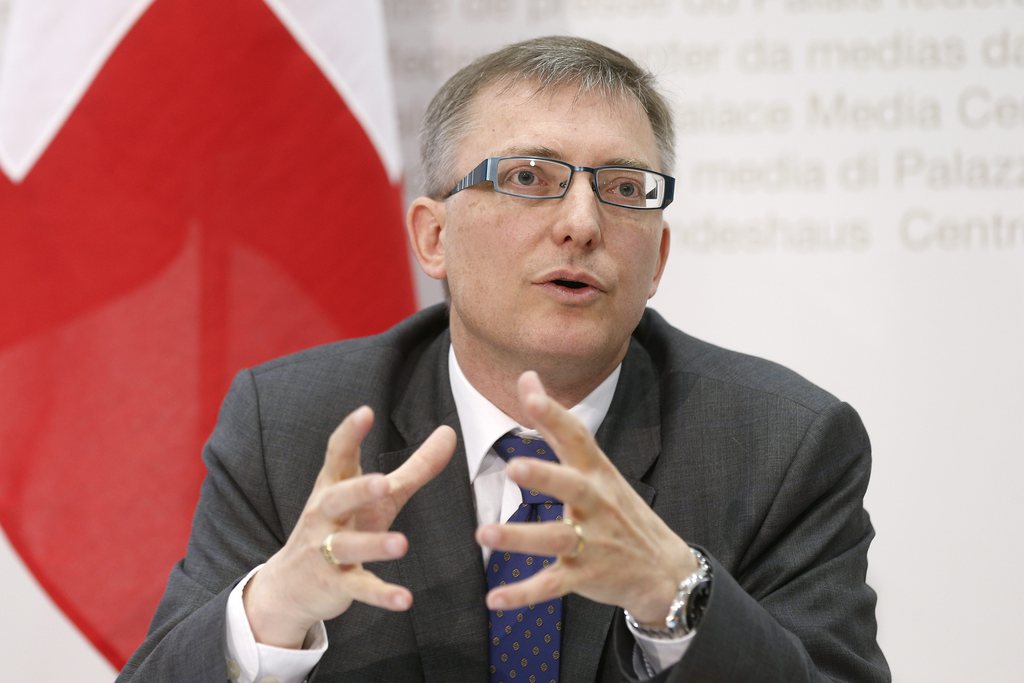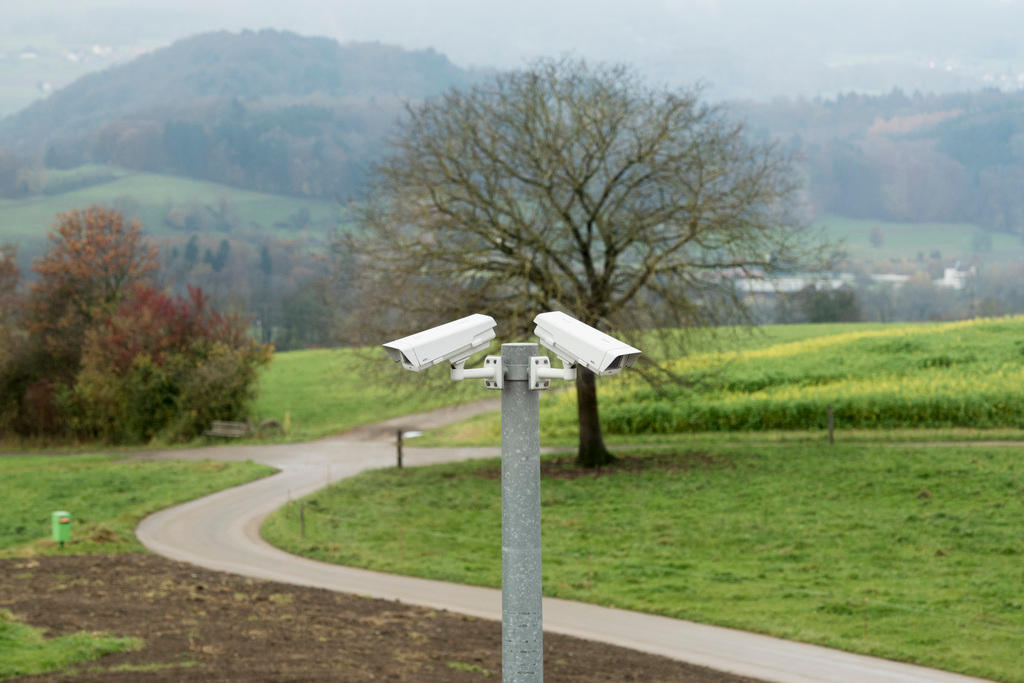Intel chief: general surveillance of mosques ‘unlawful’

There is neither a reason nor a legal basis to monitor all mosques and imams as a preventative measure, the head of the Federal Intelligence Service (FIS) has said in a rare interview.
“Mosques, their imams and their supporting organisations are seldom the problem,” Markus Seiler told the Aargauer ZeitungExternal link, explaining that threats came “mostly from the environment people are in”.
However, if the FIS were presented with concrete evidence of a potential threat, it could act preventatively, he said.
In addition, Seiler warned against viewing recent events at the An’Nur mosque in Winterthur, north of Zurich, as a one-off.
“Such tightly knit communities, like the one in Winterthur, exist all over Switzerland,” he said without going into details.

More
Muslim association suspends Winterthur mosque
On Sunday the umbrella association of Islamic organisations in Zurich suspended the mosque, which was raided by police last week. An imam there is suspected of inciting violence – he reportedly called on worshippers to murder other Muslims who refused to take part in communal prayers – and is now the subject of a criminal investigation.
The mosque has been in the headlines for the past year for allegedly radicalising young Muslims in the region and recruiting jihadist fighters – charges that it has strongly denied.
Cooperation
Seiler said the FIS had been aware of the events surrounding the raid on the An’Nur mosque, but he didn’t want to comment on what role the FIS had played.
However, he pointed to an older case – of an Islamic State cell in canton Schaffhausen – as to how cooperation between the intelligence service and the judiciary can occur.
“The original tip came from outside. We checked it out. When we had concrete evidence, we went to the federal attorney-general,” he said. The attorney-general and the Federal Criminal Police Office investigated further and brought the case before the Federal Criminal Court.
In March, three of the four Iraqi citizens on trial for planning a terror attack in Switzerland as part of Islamic State were found guilty of supporting a criminal organisation. All three were sentenced to prison terms, the longest of which will last four years and eight months.
Seiler said the FIS had “triggered or helped trigger” the majority of the roughly 60 cases before the attorney-general concerning terrorism, al-Qaeda or Islamic State.
New intel law
Seiler also discussed the new intelligence law that will enter into force in September 2017, having been approved by two-thirds of Swiss voters in September. This will allow the FIS to tap private phone lines and monitor cyberspace activities to prevent terrorist attacks. Critics had warned of arbitrary surveillance and violations of privacy.
“The new law could mean that someone is monitored without knowing it,” Seiler admitted.
But this would happen only if the case were connected with “terrorism, espionage or weapons of mass destruction”.
What’s more, Seiler said the FIS would not use the new law to carry out mass surveillance. “Switzerland rightly differentiates between violent extremism and political extremism,” he said.
He points to the Swiss files scandal, when 900,000 individuals and organisations were placed under surveillance by the federal police during the Cold War for suspect “un-Swiss” behaviour.
“After that experience, no one wants the intelligence service snooping around and finding out people’s political convictions. You can’t be punished for thinking certain things; what counts is what you do. For us, the decisive factor when it comes to extremism is the link to violence.”

In compliance with the JTI standards
More: SWI swissinfo.ch certified by the Journalism Trust Initiative












You can find an overview of ongoing debates with our journalists here . Please join us!
If you want to start a conversation about a topic raised in this article or want to report factual errors, email us at english@swissinfo.ch.